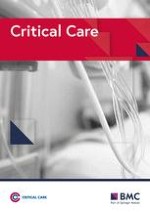Published in:

01-12-2008 | Review
Beyond antibiotics in severe community-acquired pneumonia: the role and rationale for tissue factor pathway inhibition
Author:
Pierre-Francois Laterre
Published in:
Critical Care
|
Special Issue 6/2008
Login to get access
Abstract
Despite effective antibiotic therapy, about one-third of patients admitted to an intensive care unit (ICU) with severe community-acquired pneumonia (CAP) and organ dysfunction die within a month. This high death rate demonstrates the need for additional interventions. Both animal models and clinical data suggest that pathological expression of tissue factor (TF), with consequent activation of coagulation and inflammatory processes, contributes to the morbidity and mortality associated with CAP. TF pathway inhibitor (TFPI) is an endogenous molecule with both anti-inflammatory and anti-coagulant activity. In severe CAP, endogenous TFPI is overwhelmed by increased expression of TF. In this setting administration of recombinant TFPI (tifacogin) could restore hemostasis. The OPTIMIST phase 3 trial of tifacogin in severe sepsis did not show overall mortality benefit from tifacogin. However, retrospective analysis suggested improved survival among tifacogin treated patients who had severe CAP. Benefit seemed clearest when such patients had not received concurrent heparin and/or when they had documented microbial infection. These findings led to a prospective study (CAPTIVATE) in which 2,100 patients with severe CAP requiring ICU admission were randomized to standard care plus either placebo or one of two dose levels of tifacogin. The study excluded concomitant heparin and encouraged documentation of infection. Enrolment was completed in July 2008 but data are not yet available. The primary outcome measure is 28-day all-cause mortality. In addition to short-term and long-term survival, the study is collecting data on adverse events (particularly when related to bleeding or thrombosis) and the effect of tifacogin on disease progression, resource use, and duration of ICU and hospital stay.